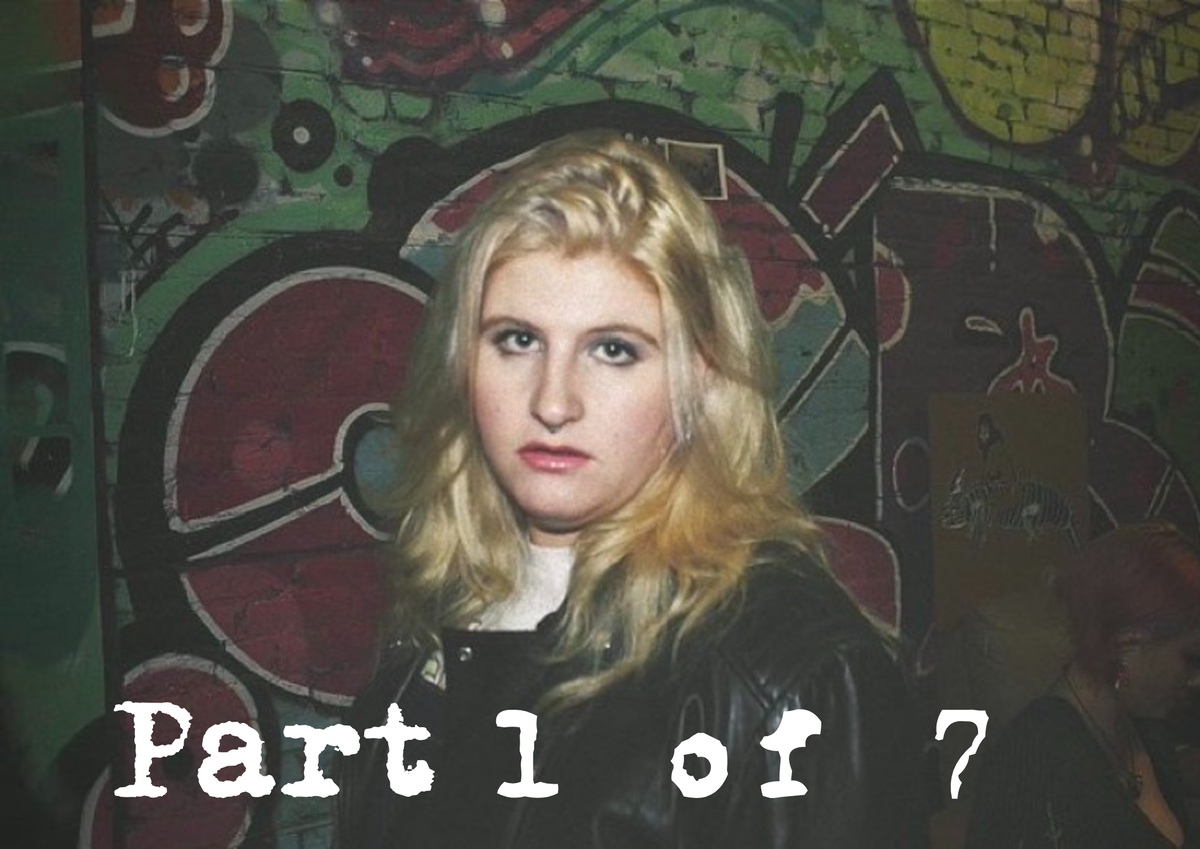14 Weird Questions With Louise Weard, Part 1 of 7
The filmmaker speaks to The Needle about trans culture and trans cinema in a long-form interview. This is The Needle's latest culture coverage.

The filmmaker speaks to The Needle about trans culture and trans cinema.
By Jane Migliara Brigham
One of the latest, (and as I have argued, one of the greatest) recent pieces of trans cinema is Louise Weard’s Castration Movie Anthology II. For The Needle’s culture coverage, I spoke to Weard at length about the film, what got her into film making, and other things.
Weard's director statement for the film opens with this paragraph.
“I sit with my co-producer co-star Dakota Blais with my Sony TRV330 pointed at my 720i Sony TV’s screen.
We are in the midst of filming the backing track to a scene that complements our characters’ prior moment together in the RV for Chapter 3 of Castration Movie.
On the TV, Trump signs executive orders one after the other for hours on end. I hurriedly ask Dakota to toss me another Hi8 tape.
A few minutes later, as co-producer co-star Aoife Josie Clements enters the apartment, we yell Shush! as we hear the words “Defending Women from Gender Ideology…” and I zoom the camera in on the pen.
Trump lets out a deflating “Oooo” and then everyone on TV is ushered out of the room. No fanfare or comment for the biggest rollback of transgender rights in the USA to date.
We watch this unfold knowing that our country will be soon to follow.
I wanted to ensure I had that moment, in its stark lived entirety, captured on camera to place exactly where we begin with the second half of Castration Movie as the narrative jumps forward a year later from the events of Part 1.”
To understand more surrounding the woman behind the film, this article is Part 1 (of 7) in The Needle’s series of articles called “14 Weird Questions with Louise Weard.”
In the style of her work, I have done the minimum amount of editing needed to immerse the reader in the conversation.
To view all parts of the interview, click below:
Full Interview Part 1 Part 2 Part 3 Part 4 Part 5 Part 6 Part 7
Question 1
Jane: So how did you actually get into film making?
Louise: I've been in the film industry since 2013. I spent a lot of time when I was younger as a huge cinephile. I really fell in love with movies at a young age, and really connected with horror films specifically, especially underground horror, because it was one of the few genres where you could look past production limitations, and not having movie stars in it.
I would go out to a lot of little indie horror festivals and stuff and see who the faces were in Western Canada that were doing weird indie horror projects. And when I ended up moving out to Vancouver, a big part of that choice was because of other filmmakers who were a decade older than me who kind of said, “oh, Louise, if you end up in Vancouver, we can maybe hook up the job or something”, right?
So I ended up going to film school in Vancouver, Canada, where there is quite a film industry. I was also working as a production assistant on Hallmark movies and bad Netflix and Amazon TV shows and stuff, really learning a lot. And a lot of the job was smoking, sitting on generators, just like in part one of Castration Movie.
This post is for paying members only
Subscribe now and have access to all our stories, enjoy exclusive content and stay up to date with constant updates.
Already a member? Sign in

